The last free-standing synagogue in Detroit is growing fast — and set for a $5 million renovation
Until recently, the 100-year-old Isaac Agree Downtown Synagogue was too small to afford a rabbi or staff
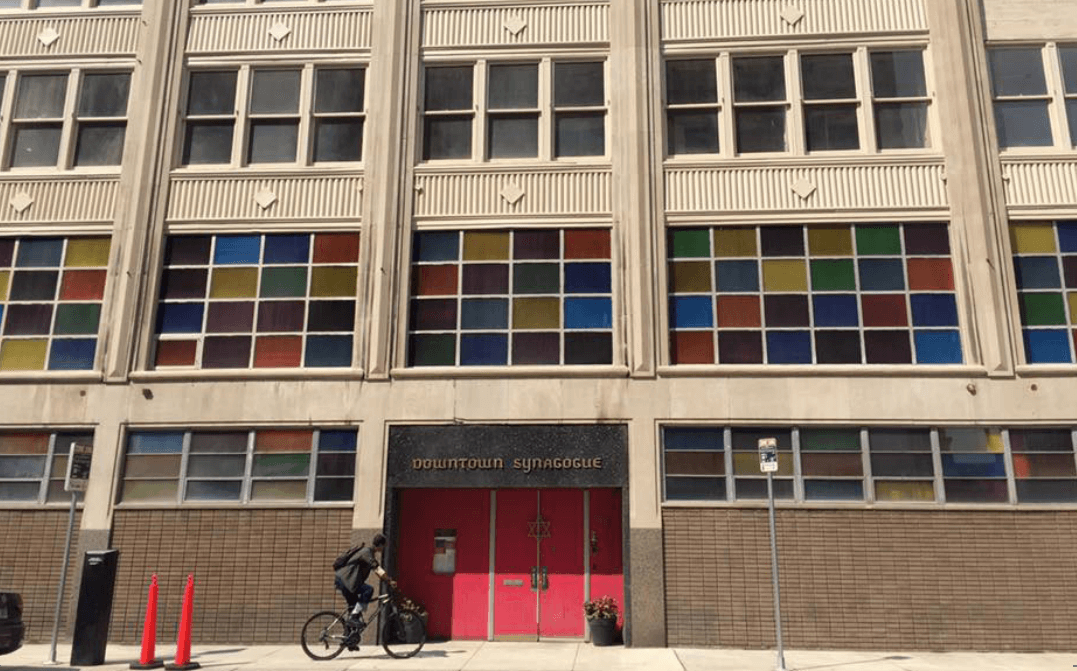
The Isaac Agree Downtown Synagogue in Detroit. Courtesy of Isaac Agree Downtown Synagogue
When Jay Hack and his wife moved to a long-blighted but fast-revitalizing section of Detroit 10 years ago, they joined the Isaac Agree Downtown Synagogue. It’s the last freestanding shul in the city, and happens to be named for his great-great-grandfather.
The building, with its two bold rows of brightly colored glass windows, both charmed and repelled them.
“The first services we went to, I brought my oldest son and he was literally crawling on the floor and we had to guide him away from broken glass,” said Hack, a 45-year-old financial planner who grew up in the Detroit suburbs.
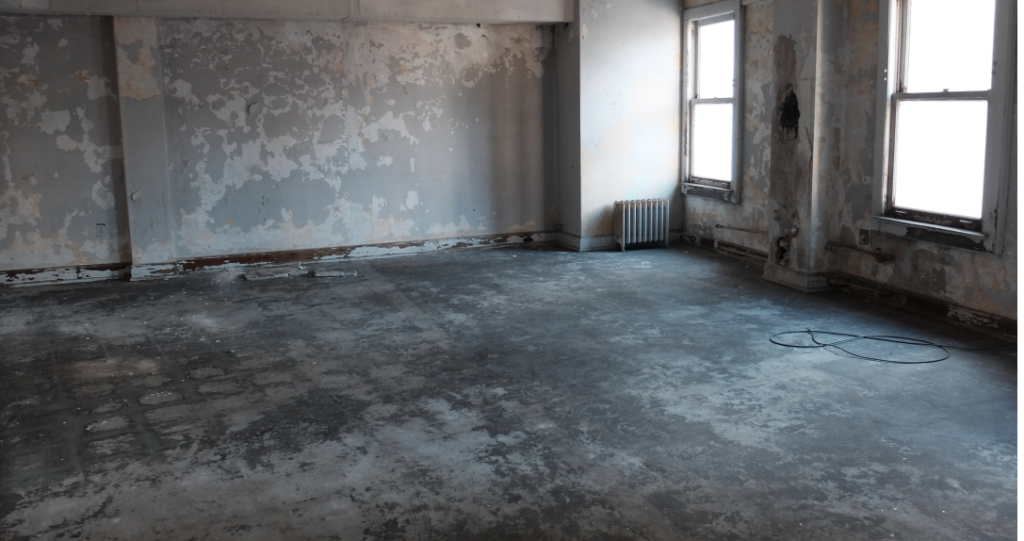
But now Hack and the growing congregation are weeks away from the start of a $5 million renovation of Isaac Agree, necessitated by a sharp recent influx of young Jewish residents and their growing families. Construction is set to begin in early June on the synagogue, which was once one of at least 40 in Detroit before a mass midcentury exodus to the suburbs doomed them.
The plan is to transform it from a decrepit structure into a gleaming, modern hub of Jewish life in southeastern Michigan — a stunning turnaround for a 100-year-old congregation too small to afford a rabbi or staff just a few years ago. It’s a rare but not unheard of renaissance for an urban synagogue; in Washington, D.C., one sold to a church midcentury became part of the center city’s renewal in 2004 when it was rededicated as the 6th & I Historic Synagogue.
After the work is completed, several major Jewish groups in the metro Detroit region are expected to rent workspace in the building as they re-establish themselves in the city after decades in the suburbs. They’ll be joining a reverse migration that has transformed much of Detroit. Around Isaac Agree in the past 10 years, scores of companies have located or relocated tens of thousands of finance and tech jobs to the city. Simultaneously, developers have renovated or converted dozens of apartment buildings for the growing workforce of young professionals.
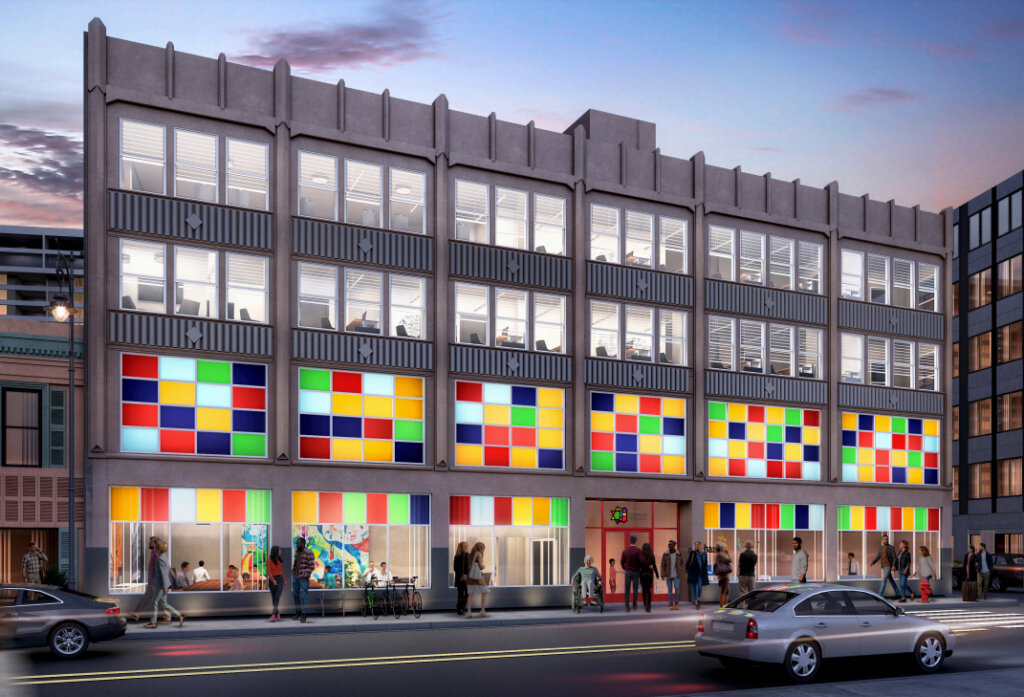
“I like to call us a 100-year-old startup,” said Rabbi Ariana Silverman, who was hired in 2016. “In many ways, we’re both a synagogue that’s been around for 100 years and we’re an organization that’s growing incredibly quickly and trying to do new and bold things at the same time.”
Back to the Future
The ambitious construction plan includes a remodeled sanctuary; a refurbished social hall and catering area; office space on the third and fourth floors which are currently condemned and unusable; and a rooftop space for weddings and other events. The refurbishment will accommodate a congregation that grew from fewer than 100 households a decade ago to more than 400 now, and from just 10 children under 18 to more than 100. While Silverman has only hosted two b’nai mitzvah so far in her six-year tenure, the temple’s new religious school already has 10 enrollees.
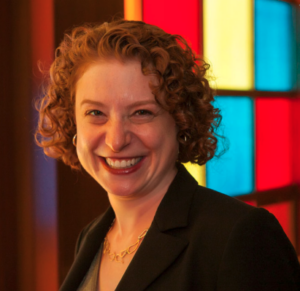 “Many congregations are struggling to get people in their 20s and 30s to be involved and certainly to join, and that actually is one of our primary demographics, which is kind of cool,” Silverman said. “The appeal is building a space that’s going to engage the next generations of Jews.”
“Many congregations are struggling to get people in their 20s and 30s to be involved and certainly to join, and that actually is one of our primary demographics, which is kind of cool,” Silverman said. “The appeal is building a space that’s going to engage the next generations of Jews.”
The project was expected to cost the $4.5 million raised in a capital campaign that launched in 2020, but Silverman said the cost has spiraled to about $5.9 million thanks to the recent spike in inflation and the construction industry’s supply chain issues.
They’re turning back to their larger donors – Michigan-based Jewish-oriented groups including William Davidson Foundation, the Gilbert Family Foundation, the Fisher Foundation, and the Kahn Foundation — to ask for larger gifts, but for the moment the construction has been pared back somewhat — no rooftop space or fourth-floor offices, for instance — as the work is scheduled to begin on June 7. It’s due to be completed in January.
“We’ll do the floors and walls of the fourth floor and have the elevator go to the roof so that the full vision can be realized at some point,” Silverman said.
Rise and demise
Isaac Agree was founded in December 1921 by Nathan and Charles Agree, the namesake’s sons, as a nonprofit family charitable association in honor of their patriarch, a Russian émigré who came to Detroit in 1904. The association endowed an Orthodox religious school that grew into a synagogue in the city’s North End and moved in 1937 to a rented building in the Downtown business district. In 1964, the shul purchased its current location, a former men’s clothing store.
Back then, the shul — the only one Downtown — served as a place for observant Jews to pray on their way to or from work. “It’s always been a convenient-oriented synagogue for businessmen or whatever to come say Kaddish,” said Hack, a board member.
As the Jewish population — and major businesses — fled to suburbs like Southfield and West Bloomfield, synagogues in the city closed or moved and membership slid at Isaac Agree. Rabbi Noah Gamze led the congregation from 1963 until his retirement in 2001, at which point the shrinking congregation became unaffiliated and lay-led. It remains unaffiliated, but is now focused on social justice work, and embraces a theology similar to that of the Reform movement, in which Silverman was ordained.
A second chance
A decade later, though, a Detroit revival began in earnest with the relocation of the headquarters of mortgage behemoth Quicken Loans – and some 1,500 jobs — from the suburbs to downtown. Dan Gilbert, CEO of what is now the Rocket Family of Companies that include Quicken, went on to buy and renovate more than 20 Downtown buildings and lead a major influx of thousands of jobs and living spaces.
Silverman, 45, was part of that migration. She moved from New York to Detroit in 2010 with her husband when he was hired as a law professor at Wayne State University. She first worked as an assistant rabbi at Temple Kol Ami in West Bloomfield and later as the rabbi of Temple Beth Israel in Jackson, Michigan, 80 miles west of Detroit. She became involved in Isaac Agree as a member doing some unpaid ministerial work; when the board felt they could afford to, they hired her in 2016 to lead their congregation.
The renovation project began, synagogue president Samantha Woll said, with a desire to fix an inoperable elevator that made the second floor, where the sanctuary is, inaccessible to mobility-challenged attendees. That grew into loftier dreams, she said, as the membership swelled.
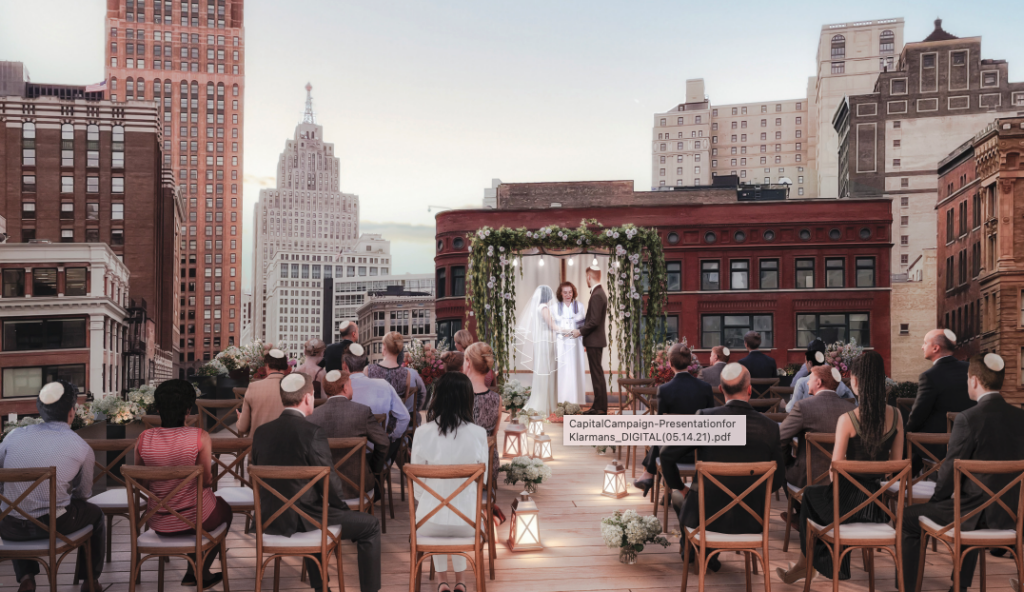
“We started to gather more support to fulfill a bigger vision so that we could be a synagogue and also a hub for Jewish life, Jewish organizations, community organizations, and the city itself,” Woll said. The cost increases are making the effort more expensive and may take more time, she said, but the congregation is buoyed by the enthusiasm from the Jewish community within and beyond the city.
“The building itself is a really special, unique place and holds a lot of meaning and memory,” she said.
The groups that have said they plan to rent office space include the Jewish Federation of Metropolitan Detroit, the Jewish Community Center, Hazon and the Reconstructionist Congregation of Detroit, which now holds its services in nearby Christ Church Detroit. (Isaac Agree’s services are also being held there during the renovations.)
Hack, the financial planner, who sits on the capital campaign committee and served a year as president of the Jewish Federation’s NextGen initiative, said Isaac Agree has evolved far beyond the time when, as a young father, he considered the decrepit building “not viable.”
“I can’t wait, selfishly, for a place to take my family that’s both beautiful and safe,” he said.
Silverman is disappointed that the delays in starting construction due to materials shortages mean Isaac Agree is unlikely to hit its goal of reopening by Hanukkah or during the synagogue’s centennial year. Other than that, though, she’s proud that the shul is preserving its deep Detroit roots in a booming area where gentrification routinely paves over history.
“We are not a community of Jews who’s coming into the city of Detroit and buying up land but we’re a community of Jews that didn’t leave,” she said. “We’re not going to move. We’re going to be here, and we’re going to develop it into something great.”
The Forward is free to read, but it isn’t free to produce

I hope you appreciated this article. Before you go, I’d like to ask you to please support the Forward.
Now more than ever, American Jews need independent news they can trust, with reporting driven by truth, not ideology. We serve you, not any ideological agenda.
At a time when other newsrooms are closing or cutting back, the Forward has removed its paywall and invested additional resources to report on the ground from Israel and around the U.S. on the impact of the war, rising antisemitism and polarized discourse.
This is a great time to support independent Jewish journalism you rely on. Make a gift today!
— Rachel Fishman Feddersen, Publisher and CEO
Support our mission to tell the Jewish story fully and fairly.
Most Popular
- 1

Culture Cardinals are Catholic, not Jewish — so why do they all wear yarmulkes?
- 2

Fast Forward Ye debuts ‘Heil Hitler’ music video that includes a sample of a Hitler speech
- 3

News School Israel trip turns ‘terrifying’ for LA students attacked by Israeli teens
- 4

Fast Forward Student suspended for ‘F— the Jews’ video defends himself on antisemitic podcast
In Case You Missed It
-

Opinion This week proved it: Trump’s approach to antisemitism at Columbia is horribly ineffective
-

Yiddish קאָנצערט לכּבֿוד דעם ייִדישן שרײַבער און רעדאַקטאָר באָריס סאַנדלערConcert honoring Yiddish writer and editor Boris Sandler
דער בעל־שׂימחה האָט יאָרן לאַנג געדינט ווי דער רעדאַקטאָר פֿונעם ייִדישן פֿאָרווערטס.
-

Fast Forward Trump’s new pick for surgeon general blames the Nazis for pesticides on our food
-

Fast Forward Jewish feud over Trump escalates with open letter in The New York Times
-
Shop the Forward Store
100% of profits support our journalism
Republish This Story
Please read before republishing
We’re happy to make this story available to republish for free, unless it originated with JTA, Haaretz or another publication (as indicated on the article) and as long as you follow our guidelines.
You must comply with the following:
- Credit the Forward
- Retain our pixel
- Preserve our canonical link in Google search
- Add a noindex tag in Google search
See our full guidelines for more information, and this guide for detail about canonical URLs.
To republish, copy the HTML by clicking on the yellow button to the right; it includes our tracking pixel, all paragraph styles and hyperlinks, the author byline and credit to the Forward. It does not include images; to avoid copyright violations, you must add them manually, following our guidelines. Please email us at [email protected], subject line “republish,” with any questions or to let us know what stories you’re picking up.














